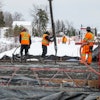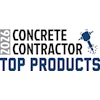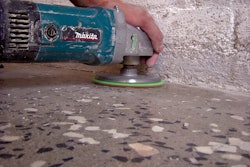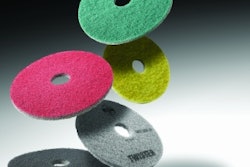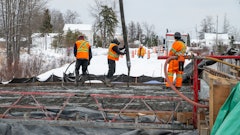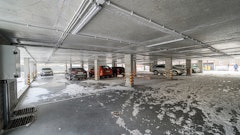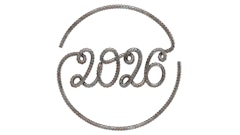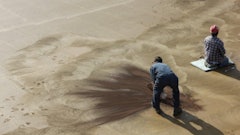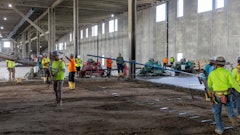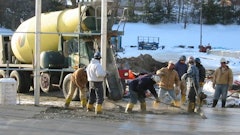
Derek Mackenzie is president of Floorlab in Toronto, Ontario, specializing in residential and small commercial polished concrete floors. Mackenzie is also a founding member of the Concrete Polishing Association of America (CPAA) and currently serves as the association's vice president. As a member of the association, he brings the same level of professionalism and respect for polished concrete that he offers each customer on every floor.
Getting started
Mackenzie discovered polished concrete in the early 2000s when he was involved in various contracting projects that had him working on polished concrete countertops and fireplace hearths. "Other finishes with concrete, like sealer or epoxy, never really made me happy. When I saw a picture of a polished concrete floor, I thought, 'Wow, I want to do that!" he recalls. "It seemed higher end to me, and I wanted to provide that high-end finish."
Mackenzie did some research on concrete polishing competition in his market and found very few people offering the service. He attended the HTC University in Knoxville, Tenn., to learn the basics of how to use grinding equipment. He bought a small grinder, and in 2005 Floorlab was born. Mackenzie created his own marketing flyers and mailed them on a Friday to a list of 500 potential customers. "At 7:30 Monday morning I had a phone call, and I've been off to the races ever since," he says.
Working with customers
Mackenzie enjoys working in high-end urban homes and has found his personality allows him to easily manage these projects. He says a lot of contractors will work behind closed doors and wait until the end of a project to show it to their customers in a big reveal, but Mackenzie warns this can be a risky approach to working with homeowners. "Polished concrete is nothing but unpredictable," he says. "I don't know what the floor is going to look like at the end of a project, so how could the homeowner know?"
Instead, Mackenzie likes to create a connection between his customers and their floors. He invites them to closely look at the project every day and will get down on a floor with them to point out unique aggregates and small spider cracks. "That way the floor becomes their story," he explains.
Why join the CPAA?
While working to perfect his own techniques and set a standard for the polishing industry in his market, Mackenzie says he would run into projects that were working against his efforts. "I often go on polishing jobsites and I am horrified at what I'm asked to fix," he says. "I felt a lack of proper respect for the polishing industry."
Mackenzie got involved with a group of contractors who would eventually make up the founding members of the CPAA. He connected with them because he felt he finally found a group of people who wanted to intellectualize about the niche market of concrete polishing. "We would talk about what equipment would work and what didn't. No one had secrets; we were just sharing knowledge to better the industry," he explains.
The CPAA morphed out of the Concrete Processing and Polishing Institute and utilized its established training program as the backbone of the new association. "Concrete polishing is a craft, and we [the founding members of the CPAA] wanted a standard and accreditation. No one becomes a plumber overnight, and we thought a concrete polisher needed that kind of training," Mackenzie says. "It would have saved me two years of learning on the job if I had the chance to take the CPAA's thee-day class when I started in this business."

